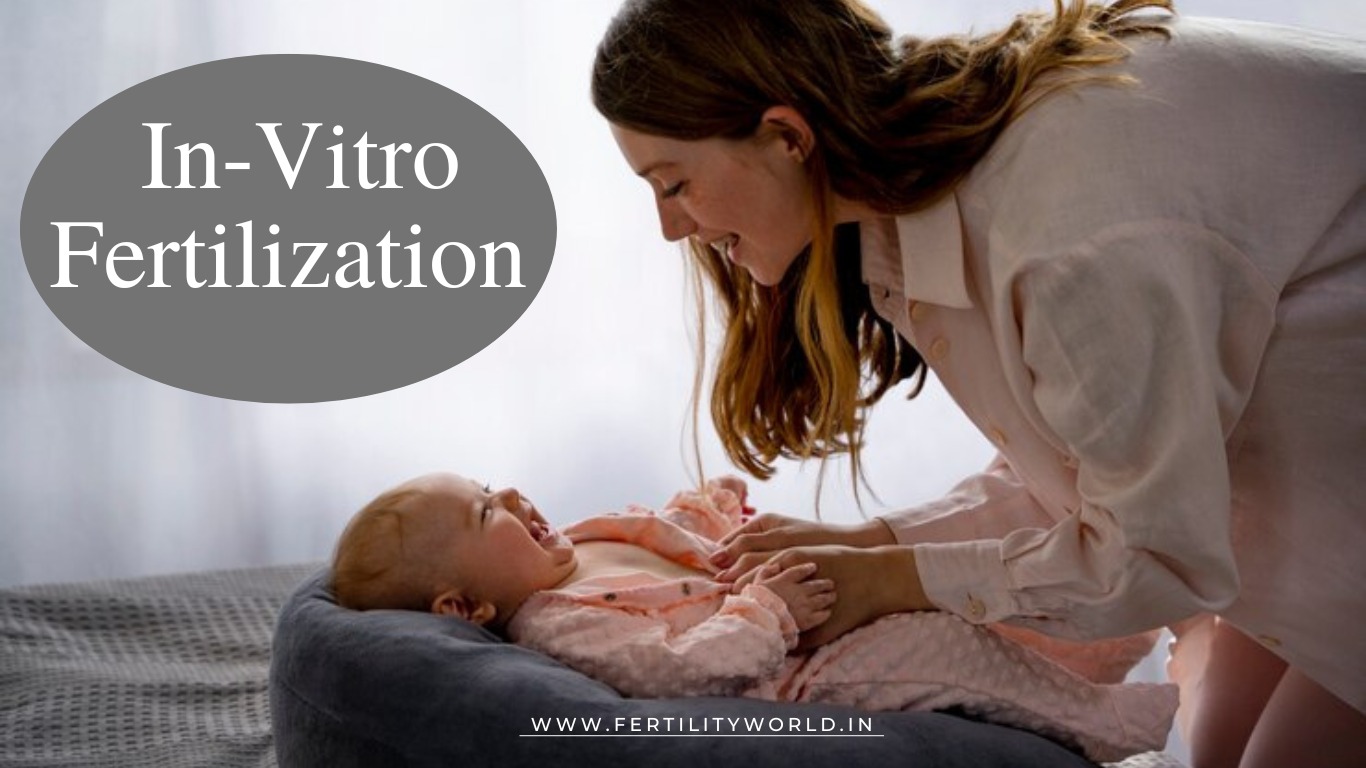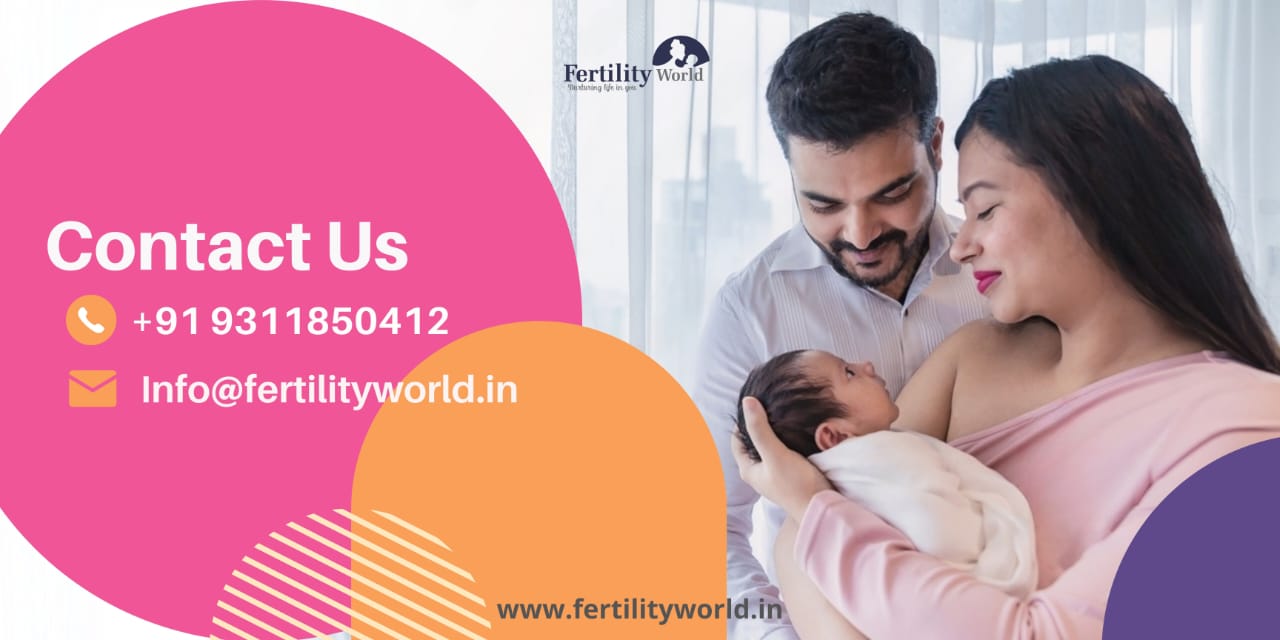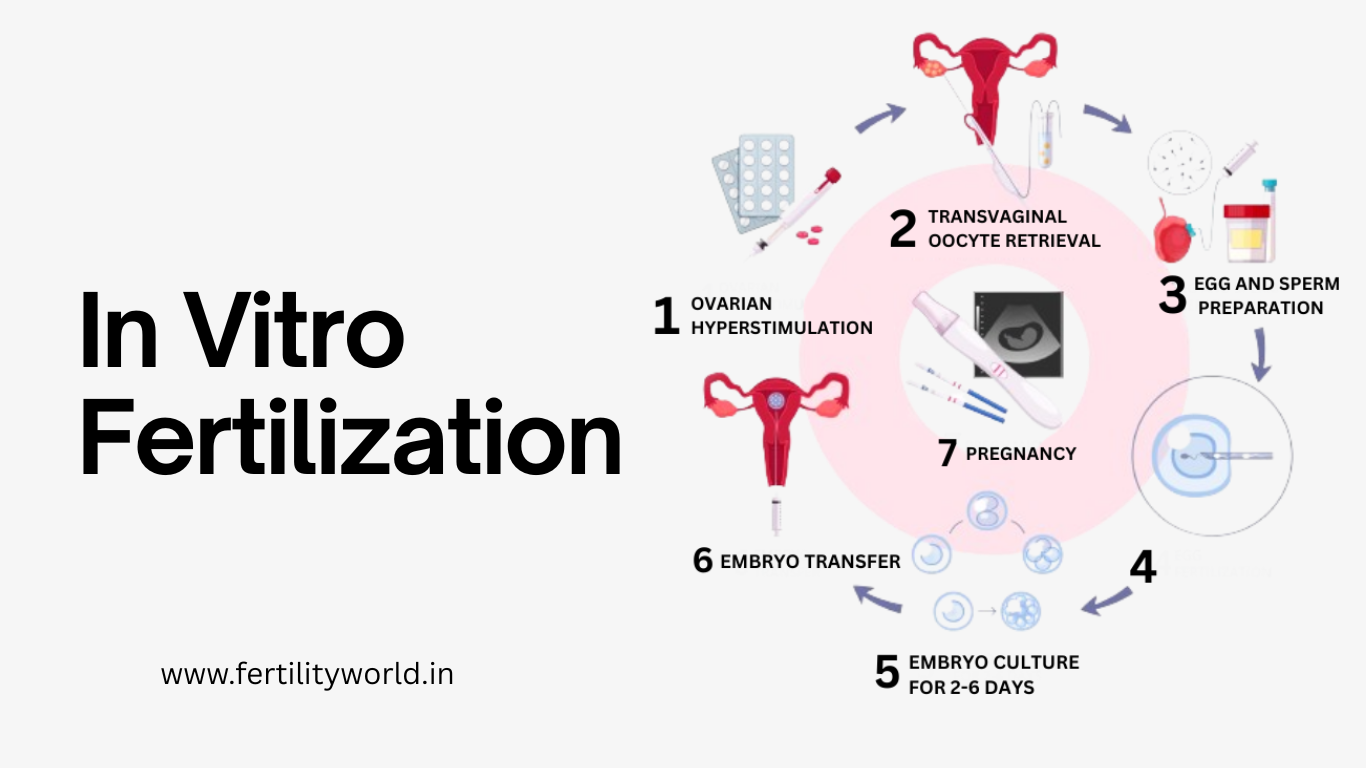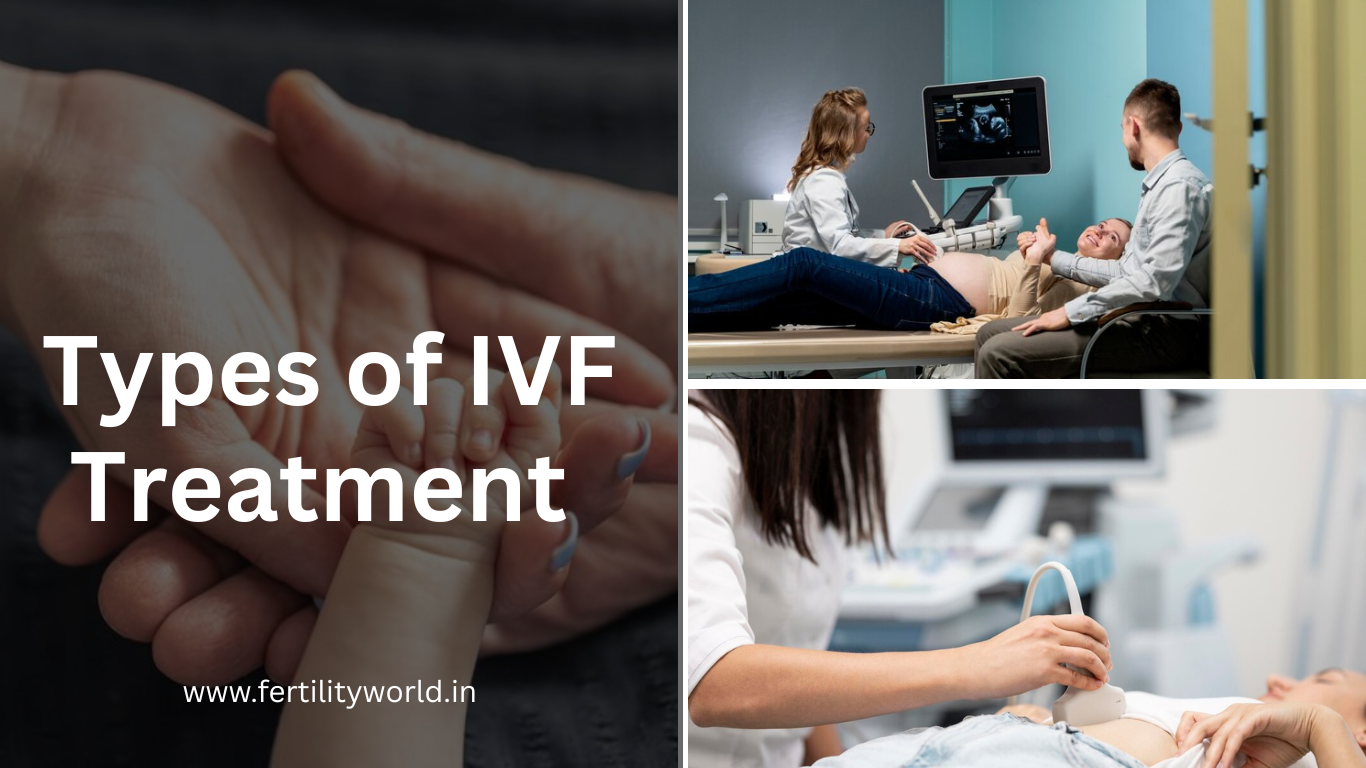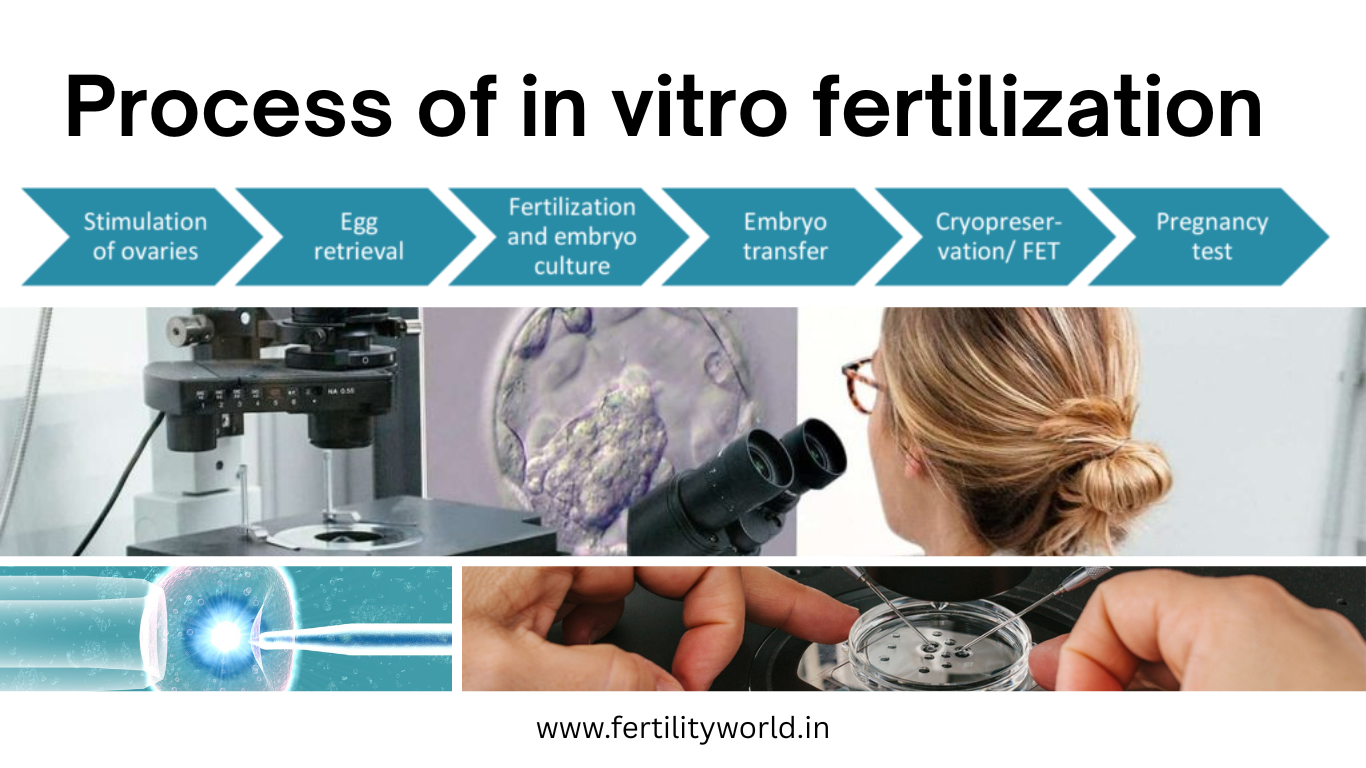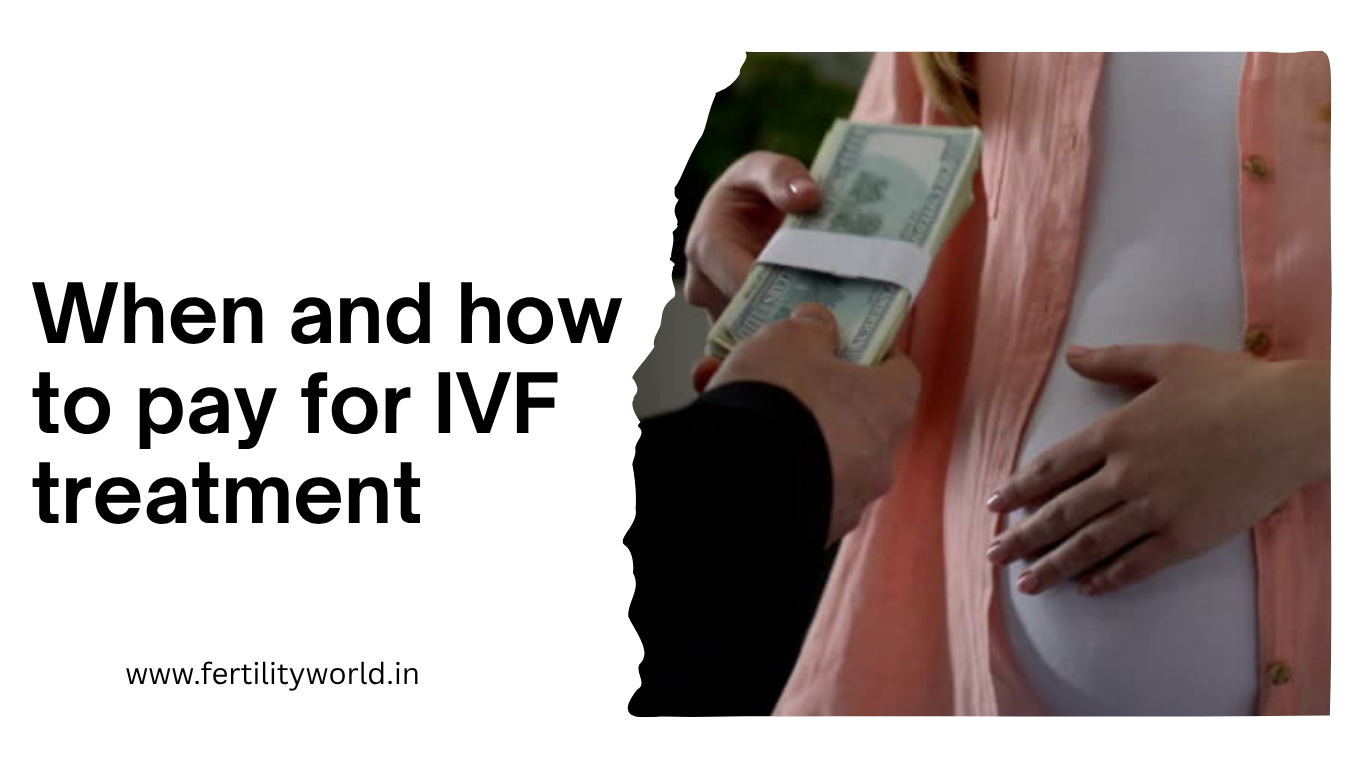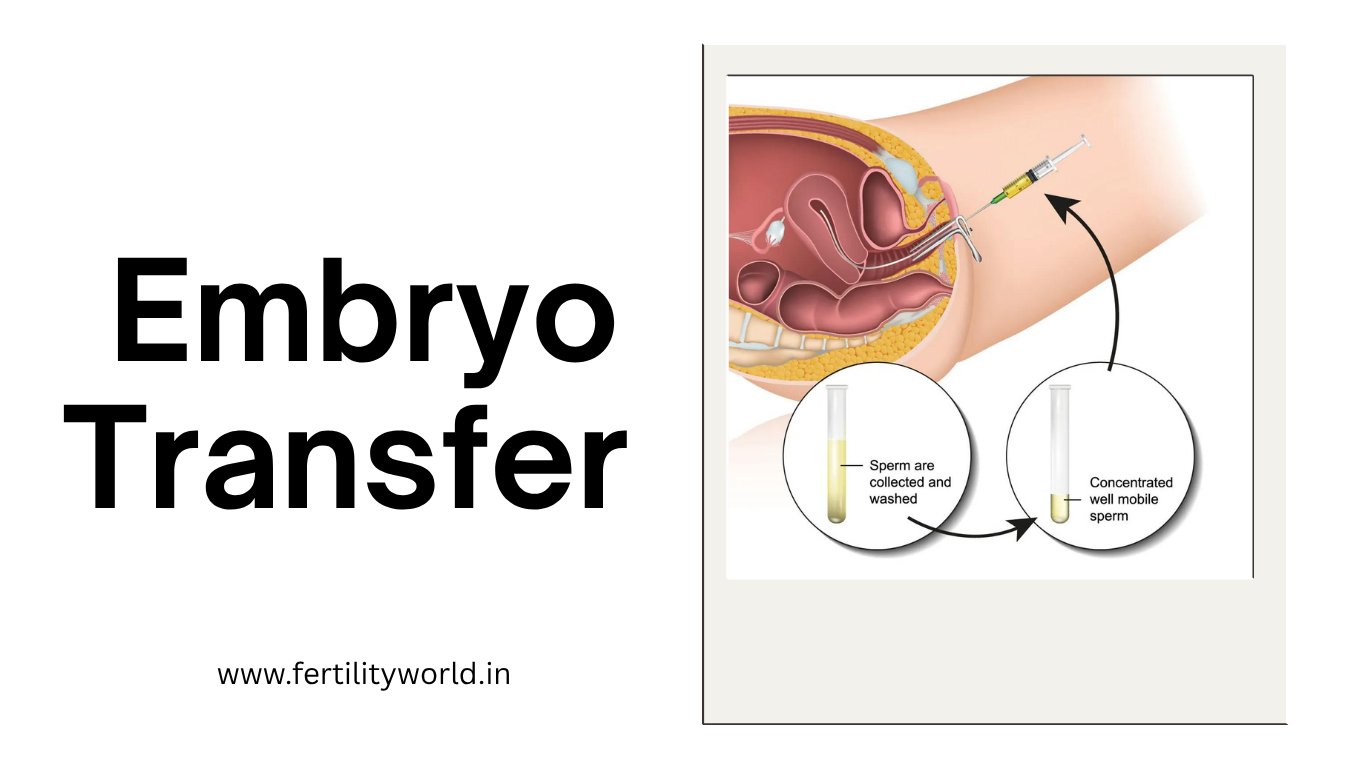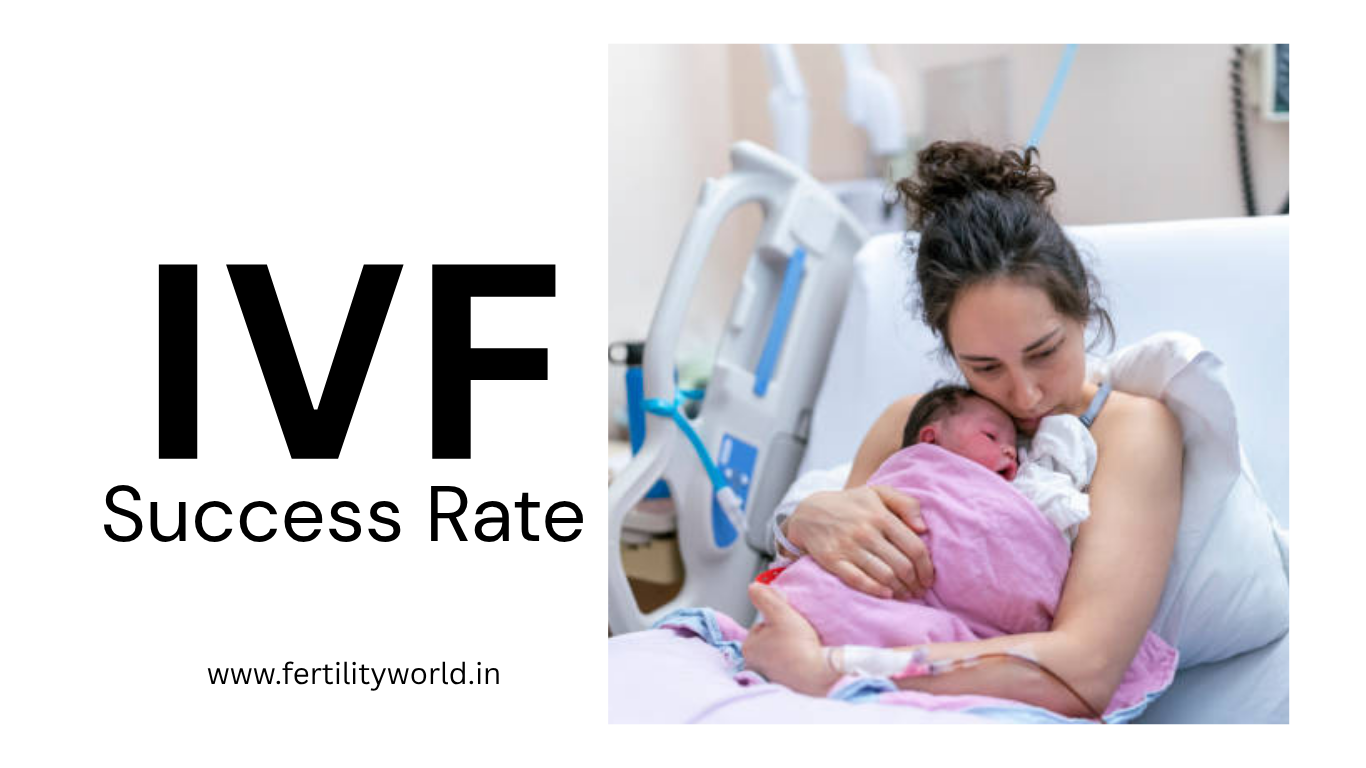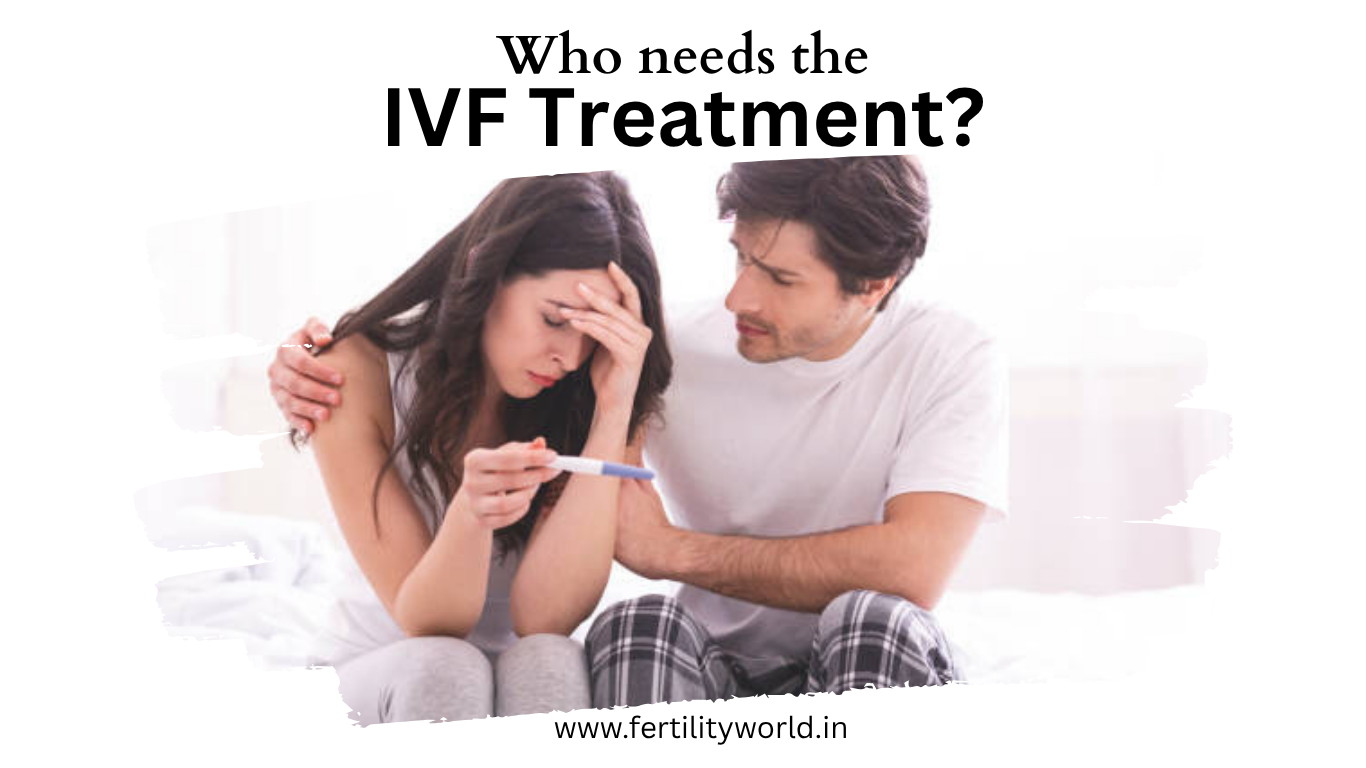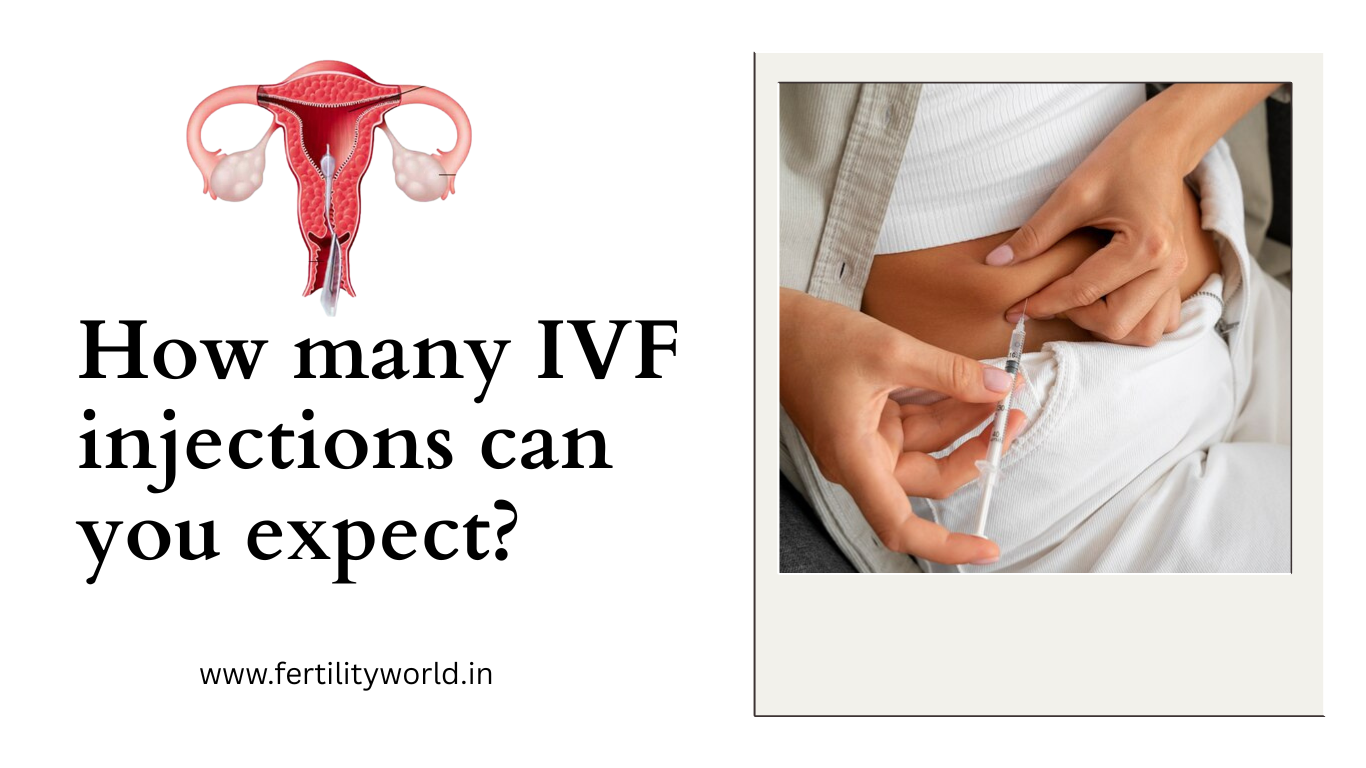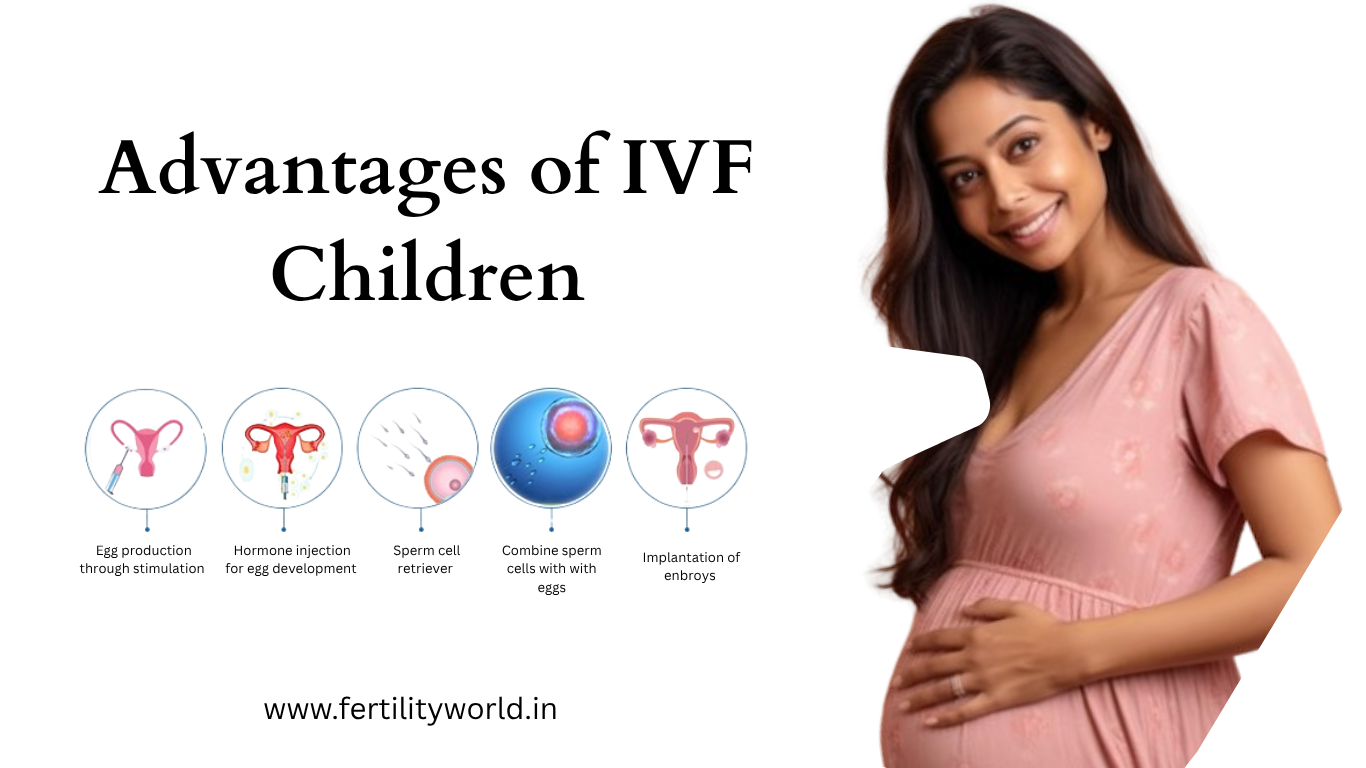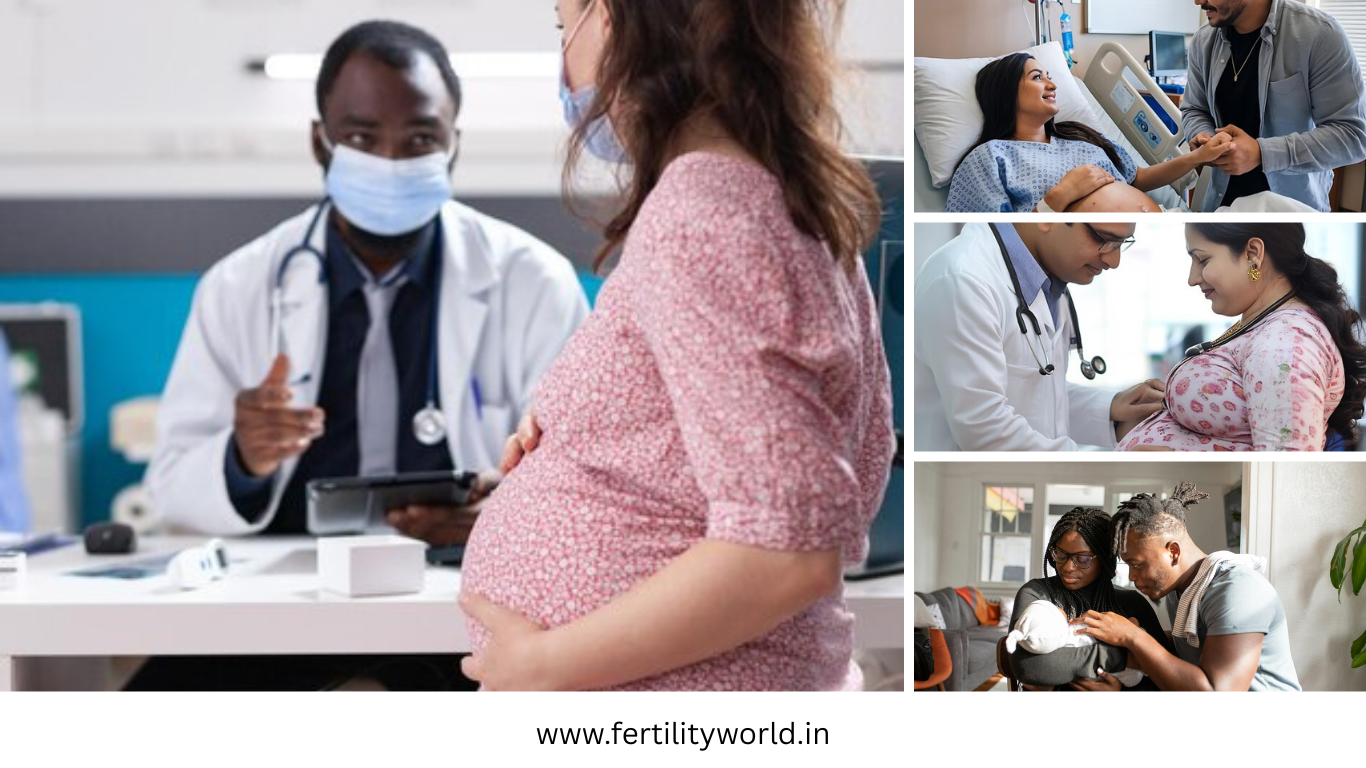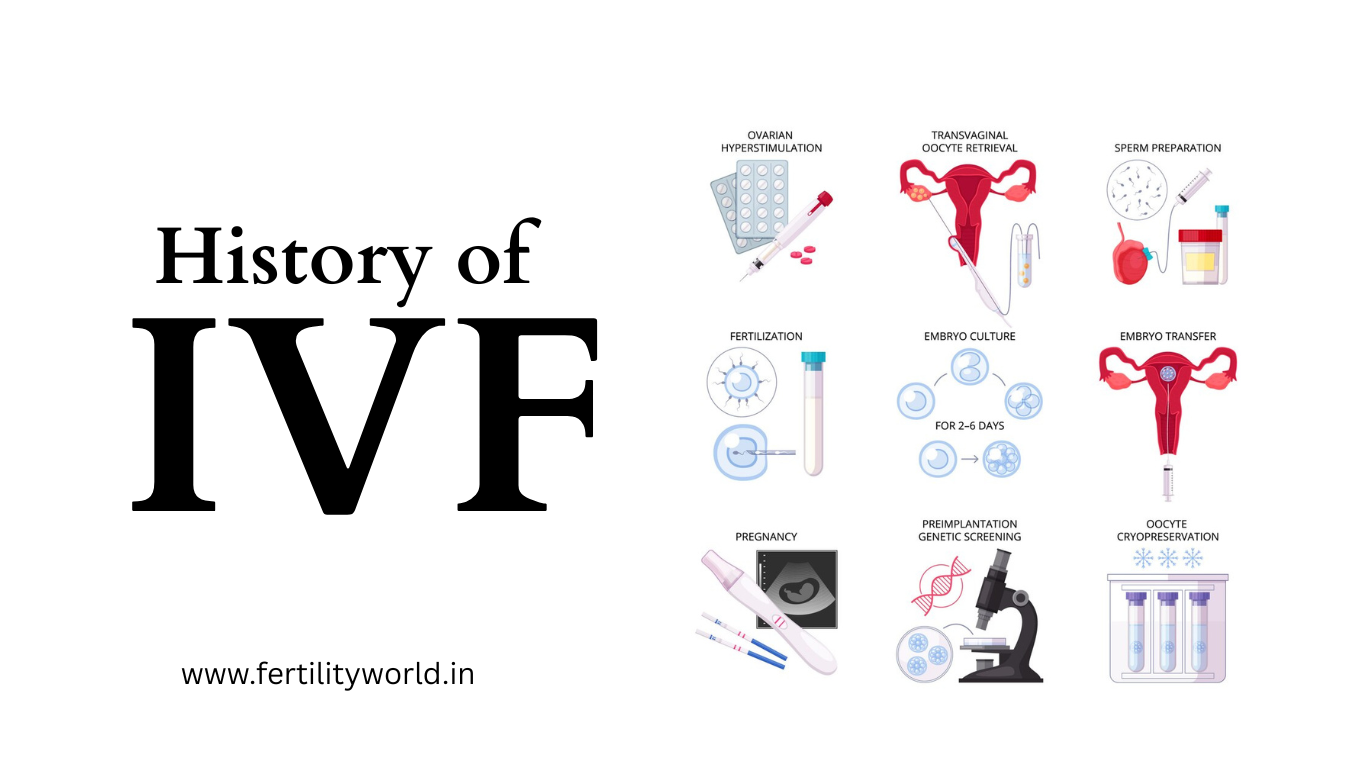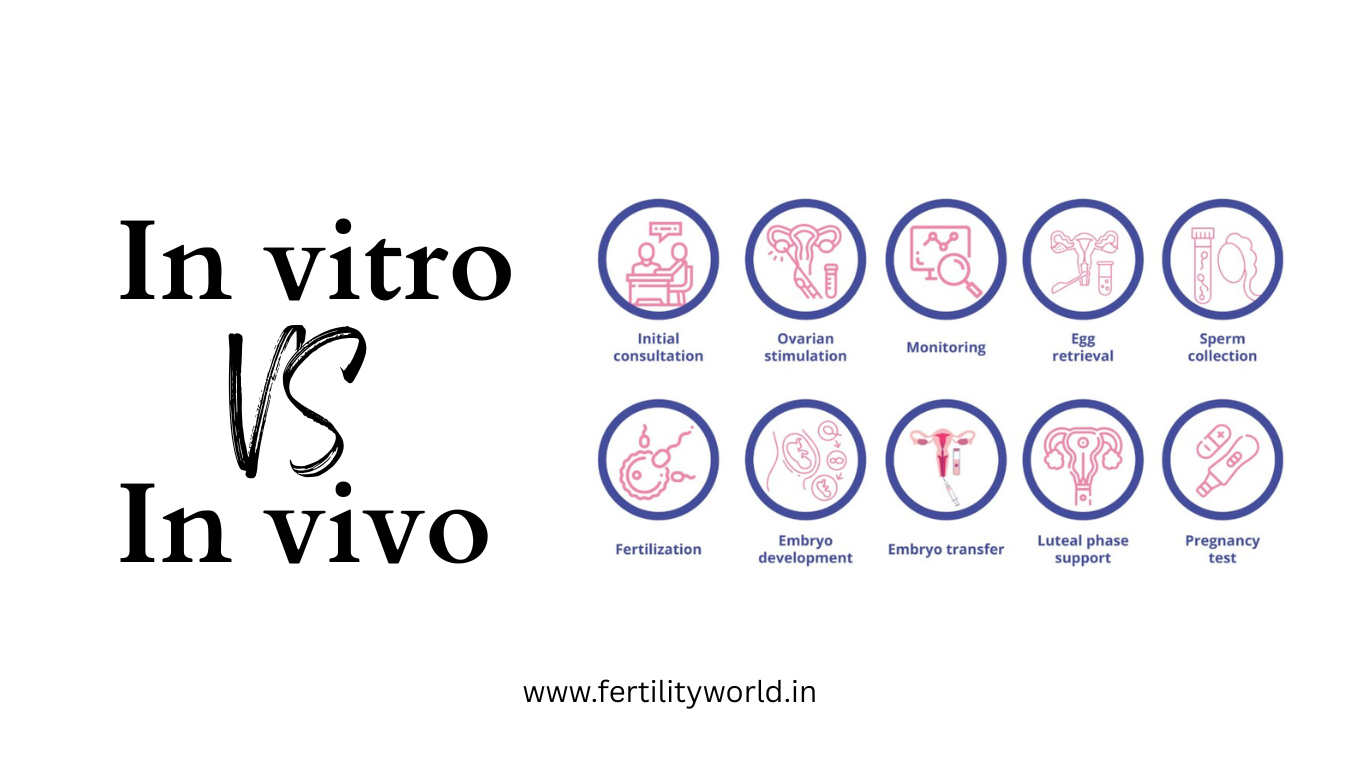In Vitro Fertilization (IVF) is a life-saving assisted reproductive technology available in the world today. Infertility is very prevalent today; 1 in every 5 couples don’t get pregnant. Some causative factors have been determined, yet many are unexplained. The advanced assisted reproductive technology (ART) helps you overcome infertility and experience parenthood. There are various infertility treatments associated with ART, but IVF is the ultimate option.
- Book an online appointment: Get a free IVF consultation.
- Call\W:+91 9311850412
- Email:info@fertilityworld.in
What is in vitro fertilization, and how does it work?
IVF or In-vitro fertilization is an assisted reproductive treatment. The techniques involve the creation of embryos by fertilizing eggs and sperm in the laboratory (outside the human body) and implanting them back into the female uterus, which results in pregnancy. The advancement of IVF technology is exclusively addressing thousands of infertile patients worldwide.
Types of IVF treatment.
- Self-cycle IVF: Using self-gametes (self male sperm and self female egg) that generate an embryo is one type of IVF treatment. This implies that both egg and sperm are viable for IVF.
- Donor Egg-cycle IVF: Donor egg and partner sperm are combined to generate an embryo. Female partner eggs are not viable for IVF due to certain infertility factors. IVF with donor egg costs are slightly higher than self-cycle IVF, and the success rate is usually higher when using a donor.
- IVF with ICSI: Both Self-cycle and donor cycle can combine with ICSI, which boosts fertilization when the egg membrane is thick and hard to penetrate by the sperm in the culturing condition (in 1 & 2).
Process of in vitro fertilization.
A complete IVF procedure, starting from initial consultation to pregnancy confirmation, typically takes 4 to 6 weeks, and any unforeseen delays during the procedure can account for extra time consumption. Step-by-step guide to the IVF process. The process of IVF involves 5 main stages. These 5 stages of the IVF procedure are explained below:
- Ovarian stimulation: Hormonal medications or injections are administered. It stimulates the ovaries and produces multiple eggs. More egg production ensures better chances of successful IVF.
- Trigger ovulation: A trigger injection is administered at a very specific time, which is very important to maintain.
- Oocyte pickup or retrieval: The embryologist retrieves the eggs through a minor surgical procedure known as follicular aspiration. At this time, if a male partner has a low sperm count or no ejaculate, his sperm is also collected through traditional or surgical sperm aspiration procedures.
- Fertilization: The eggs & sperm are inoculated in the culture medium and incubated overnight, resulting in fertilization, known as embryos. This step is also known as artificial insemination. The embryologist may also inject sperm directly into the egg, known as intracytoplasmic sperm injection (ICSI).
- Embryo implantation: A 3rd or 5th day embryo is selected and loaded into the catheter by the doctor, and implanted into the uterus. Followed by regular monitoring. Followed by pregnancy tests after 2 to 3 weeks of transfer.
When and how to pay for IVF treatment.
IVF cost can be paid in 4 different installments. These privileges are not offered by all IVF clinics. The fertilityworld is one clinic that provides this platform. It enables patients to arrange the cost swiftly without difficulties. The table below represents the IVF cost breakup:
| Payment break-up | Payment Schedule |
| 1st Payment | At the time of IVF registration |
| 2nd Payment | During the egg retrieval |
| 3rd Payment | At the time of embryo creation |
| 4th and last payment | After the embryo transfer is done. |
Embryo transfer and its success rates.
The IVF embryo transfer process is crucial and fragile, which requires skilled embryologists. In this process, anesthesia or sedation is rarely used. The 3rd day or 5th day embryo/s is picked and loaded in a long, thin catheter along with a small amount of fluid. Using ultrasound guidance, the catheter is inserted through the cervix into the uterus and releases the embryo or embryos. After the procedure, continuous monitoring for embryo receptivity in the uterine cavity ensures pregnancy.
IVF success rates
IVF success rates depend on the individual’s infertility conditions. Some get in the first attempts, and some parents may require a 2nd IVF cycle. Generally, the IVF success rate is higher among couples below 35 years, moderate in the late 40s, and lower beyond 50+ years as they grow older, which causes diminished ovarian reserve.
Who needs the IVF treatment?
IVF treatment is the ultimate option for;
- Couples who are infertile and above 21 years.
- Women with low ovarian reserve, poor egg quality,
- Women with blocked or damaged fallopian tubes,
- Women with tubal ligation/sterilization.
- Males with low sperm count or blockages,
- or those with genetic conditions, who wish to avoid passing them on to their children.
- Or individuals wanting to conceive without a partner.
How many IVF injections can you expect?
Usually, 3 types of IVF injections you can expect, but they are administered by looking at your reproductive responses. These IVF injections include
- Stimulation injection, to stimulate multiple egg development.
- Suppressing injection, to suppress ovulation from occurring.
- Embryo Glue injection to support the process of implantation & higher chances of conception.
Advantages of IVF Children.
This question, “Do IVF babies look like their parents?“ has boggled many infertile parents just like you do. The advantages of IVF children are provided below to provide an accurate answer to the questions:
- Yes, IVF parents look like their parents.
- In the self-cycle IVF, children share 50% genetics of both mother and father, and 50% biological inheritance in donor-cycle babies.
- Healthier than your expectations.
- IVF babies are just as intelligent as others.
- Physically fit as their naturally conceived counterparts.
- The IQ of an IVF baby is an average of 112, and the naturally born baby’s average IQ is 107.
- Summing up, the IVF baby is physically and mentally fit, like all normal children.
Top 10 best IVF clinics in the world
The fertilityworld IVF Centre is among the top 10 best IVF clinics in the world today. IVF in Western countries is way more expensive than IVF in Asia. In Asia, India is ranked as a favourable IVF destination for couples from around the world due to its rich medical research and history that provides a higher success rate and affordable, low-cost. The following links provide detailed IVF treatment and its cost at the ideal IVF destination countries around the globe:
- IVF cost in the USA.
- Cost of IVF in Australia.
- IVF cost in Canada, IVF cost in Ontario.
- IVF in India for foreigners.
- IVF cost in UAE.
- IVF treatment cost in Dubai.
- IVF cost in Thailand (Bangkok).
Symptoms of pregnancy in the first month.
Just imagine the feelings of excitement and happiness after the news of your positive IVF results. Every mother will experience different symptoms of pregnancy in the first month. Some symptoms can be felt as if pregnant, but they may also indicate other health issues. The most common symptoms of pregnancy are:
- Early pregnancy: Missed period, breast tenderness or soreness, fatigue, nausea, and increased urination.
- Common symptoms: They include mood swings, light spotting, bloating, headaches, implantation bleeding, and changes in appetite.
- Other possible symptoms: They include increased basal body temperature, gas in the belly, irritation, food cravings or aversions (mostly sour taste), a heightened sense of smell, and a metallic taste in the mouth.
History of IVF.
In vitro fertilization (IVF) is not a new thing; it has been around for almost half a century. The first stages of early IVF history began in the 1950s with non-human mammals. The first successful human egg fertilization was reported in 1969. The first IVF pregnancy was confirmed in 1973, and IVF became a highlight when Louise Brown was born for the first time through IVF treatment in 1978. Advancements of IVF technology with improvements in fertility drugs, ultrasound technology, and the development of techniques like ICSI and cryopreservation between the 1980s to 1990s, every infertile parent can approach different IVF centres around the globe and receive IVF parenthood today. India’s Contribution to the history of IVF goes to Dr. Subhas Mukherjee, who was a pioneer in IVF at the time, independently developing a method for IVF and cryopreservation, though his work faced initial challenges and delays in recognition. The first IVF birth in India occurred in 1978, just 67 days after Louise Brown’s birth.
In Vitro Vs. In Vivo
“In vitro” means “within the glass” or “outside the living organism” where the experiments are conducted outside the body, typically in a laboratory setting like a petri dish or test tube, whereas “In vivo” means “within the living organism” where the experiments are conducted inside the body, such as a plant, animal, or human. Also, take a look at the In vitro Vs. In vivo represented in the table:
| Sl.# | In Vitro | In Vivo |
| 1 | Experiments outside a living organism | Experiments inside a living organism. |
| 2 | Usually, in the laboratory (test tubes, petri dishes). | In a laboratory setting. |
| 3 | Often used for initial screening. | It examines the effects of a substance or treatment on the entire organism, |
| 4 | It allows us to understand the basic biological mechanisms. | It provides a realistic picture of how it interacts with the body |
| 5 | Less expensive and faster | More expensive and time-consuming. |
| 6 | Example: IVF is a well-known example. Others include studying cells in culture, testing drug efficacy on cells, or conducting various biological assays. | Example: Clinical trials, animal studies, and studies on organisms in their natural habitat. |

